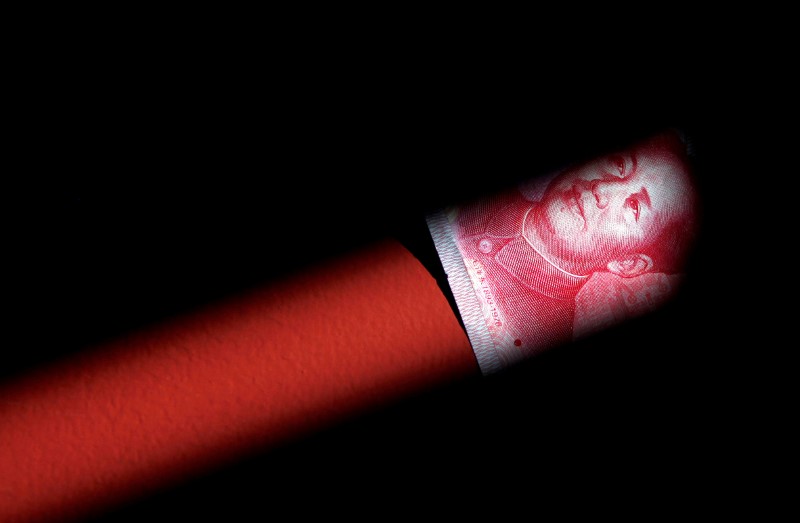SHANGHAI (Reuters) - China will change the way it calculates a key yuan index in the new year, nearly doubling the number of foreign currencies in a basket that is used to set the yuan's value, its foreign exchange market operator said on Thursday.
The central bank, which oversees the market operator, has been trying to reform the way it manages the yuan by making it more market-driven and transparent.
Starting on Jan. 1, the number of currencies in the CFETS basket will be increased to 24 from 13, the China Foreign Exchange Trade System (CFETS) said in a statement on its website.
The change is aimed at improving the mechanism generating the CFETS RMB Index <.CFSCNYI> and making the CFETS basket more representative, it said.
China has been promoting use of the index, partly to divert attention from the yuan's value against the dollar
The trade-weighted CFETS RMB index, which was unveiled in December 2015, fell 5.8 percent between the end of 2015 and Dec. 23 this year.
The yuan index has been steady since early October, while the currency has been losing ground versus a broadly strengthening dollar.
Analysts said the change was in line with the central bank's bid to discourage investors from exclusively tracking the yuan's fluctuations, but it would have limited impact on the Chinese currency, which is expected to weaken further against the dollar in 2017.
"This means that the central bank will pay more attention to the RMB's stability against a basket of currencies," analysts at CEBM Group said in a note.
"If the dollar strengthens sharply, weakening in the yuan will be inevitable."
The yuan is also known as renminbi, or RMB.
The 11 currencies to be added, including the Korean won, the South African rand and the Mexican peso, will have a 21.09 percent weighting in the basket, which the CFETS said would basically cover the currencies of China's major trading partners.
The dollar's weight will be reduced to 22.4 percent from 26.4 percent and the euro's to 16.34 percent from 21.39 percent, the CFETS said in its statement.

It said it would adjust the composition and weighting of its currency basket annually.